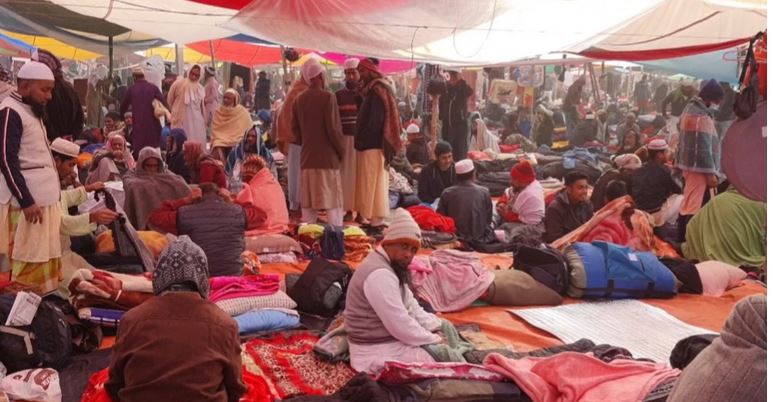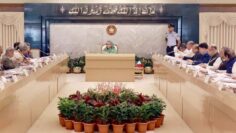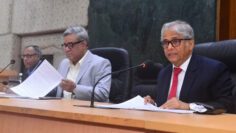
2nd phase of Biswa Ijtema begins
PBC NEWS DESK: The second phase of Biswa Ijtema, the second largest congregation of the Muslims, began on the bank of the Turag River in Tongi, on the outskirts of the city, on Friday.
This phase of 56th edition of the Biswa Ijtema(World Congregation) began with the “a’m bayan” (general sermons) after Fajr prayers with the participation of a large number of devotees, including the followers of Indian preacher Maulana Muhammad Saad Al Kandhalvi.
However, Maulana Saad is not attending this year’s Ijtema. The sermons were delivered by Pakistani Islamic scholar Maulana Mohammad Osman which were translated into Bangla by Maulana Zia bin Qasim.
Thousands of devotees from home and abroad thronged the banks of the Turag River to listen to scholars reciting and explaining verses from the Quran and to renew their commitment to Islamic values.
In the afternoon, they will offer Jumma prayers, led by Maulana Saad’s son Yusuf bin Saad Kandhalvi, at the Ijtema ground.
Additional police personnel have been deployed in and around the Ijtema venue to ensure the security of the devotees”Additional police will be deployed in and around the Ijtema venue to ensure security of the devotees.
The venue has been brought under closed-circuit television (CCTV) camera surveillance,” Gazipur Metropolitan Police (GMP) Commissioner Molla Nazrul Islam said.Health camps were set up for the devotees to provide them with treatment like the previous years.
However, a devotee from Barguna Mofizul Islam, 75, died at the Ijtema venue early Friday due to complications of old age.
The three-day Biswa Ijtema will end on January 22 with Akheri Munajat (final prayers).
Meanwhile, metro rail in Dhaka will be operated from 8am to 5pm on January 22 for the smooth movement of the devotees attending the second phase of the congregation.
The first phase of three-day Biswa Ijtema ended on January 15 with Akheri Munajat.Tabligh Jamaat has been organising the congregation in Tongi since 1967. In 2011, it divided Ijtema into two phases to accommodate a large number of attendees.





















